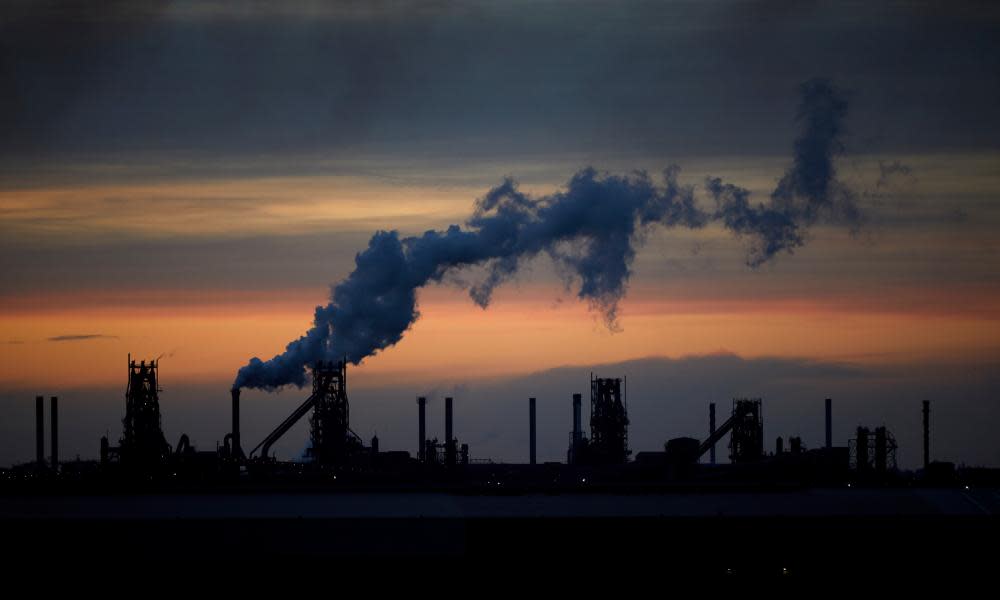UK takes first small steps to tackle carbon from worst polluters

The British government has taken its first small steps towards tackling carbon emissions from the most polluting sectors of the economy by ploughing billions into decarbonising heavy industry, transport and heating.
The Treasury set out a multibillion-pound plan to support electric vehicles, green home heating networks and carbon capture technology – while cracking down on plastic packaging too.
The Committee on Climate Change (CCC), the government’s official climate advisers, described the Treasury’s package of green measures as a “realistic start” but said it did not “close the climate policy gap” enough to meet the UK’s climate targets.
The Treasury’s green pledges include:
£1bn on green transport.
An £800m fund to develop at least two carbon capture projects.
A £270m green heat network fund.
A £100m grant for homes to adopt low-carbon heating.
A rising levy on gas use through the Green Gas Levy and the Climate Change Levy.
A freeze on fuel duty, and scrapping tax relief on red diesel by 2022.
A £200-a-tonne tax on plastic packaging with less than 30% recycled content for companies that use more than 10 tonnes a year.
One of the Treasury’s most ambitious pledges was its first major investment in carbon capture technology in the last five years. It plans to spend at least £800m to decarbonise at least two heavy-industry “carbon clusters”, the first in 2025 and the second by 2030.
These schemes could keep millions of tonnes of carbon from contributing to global heating and create 6,000 highly skilled green jobs in industrial areas such as Teesside, Merseyside, the Humber and St Fergus in Scotland.
The funding is less than the £1bn demonstration fund axed by the Conservative government in 2015, and falls short of calls from MPs and the CCC to roll out multiple carbon capture projects by 2025.
The government also plans to spend £1bn on green transport, including more than £400m to extend grants for new electric vehicles and £500m to support the rollout of new rapid charging hubs so that drivers are never more than 30 miles away from being able to charge up their car. It has also maintained a long-held freeze on fuel duty for fossil fuel vehicles.
Jayne Harrold, a leader on environmental tax at PricewaterhouseCoopers, said the Treasury’s green measures offered mixed messages before the UN climate talks in Glasgow in November.
“On the one hand we have the freezing of fuel duty and the building of 4,000 miles of new roads and on the other we have incentives for cleaner forms of transport, minor shifts to energy taxes, and significant investment in carbon capture and storage,” she said. “Let’s hope the autumn strategic review will bring a much more coherent, bigger and bolder approach that really gets it done.”
Heating remains a major source of carbon and the government plans to open a grant scheme from April 2022 to help households and small businesses invest in heat pumps and biomass boilers, backed by £100m of exchequer funding.
It will also invest a further £270m in a new green heat networks scheme which the Association for Decentralised Energy estimates could help connect 4.25m homes to heat networks by 2050, from 500,000 today.
The government also confirmed plans to introduce a plastic packaging tax under which producers and importers will pay £200 a tonne on wrappings with less than 30% recycled content from April 2022.
Green campaigners welcomed the tax but questioned why the government was waiting another two years to introduce it.

 Yahoo News
Yahoo News 
